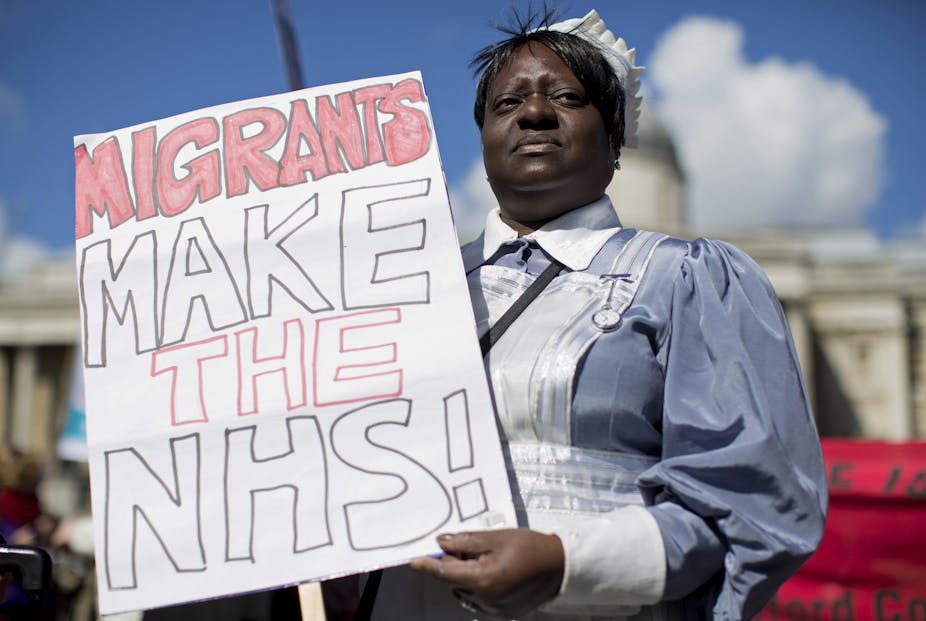The Francis Report into the malpractice at the Mid-Staffordshire NHS Foundation Trust marked a defining moment concerning nurse staffing. The report contained much about governance and management but it was its attention to quality assurance and staffing that were seminal.
The message was that rigour and responsiveness are necessary in determining safe nurse-staffing levels and their neglect produces the inevitable failings that arose at Mid Staffordshire. The view of Francis on the development, sustenance and reporting of safe staffing levels was universally endorsed across the health and care sector.
The mounting vacancy rate in nursing is self-explanatory: the country is not training sufficient students to replace losses of qualified staff for reasons including retirement or a change of career, or moving abroad – more nurses are now moving abroad than are coming to the UK to practice.
The result is failed provision of appropriate quality care and defective patient safety. The extent of insufficient recruitment to training is also plain. In this fiscal year 2015-2016, training places increased by 989 to just under 23,000. Given that it is estimated that the NHS faces having 48,000 fewer nurses than needed by 2016 this represents a clear shortfall.
Retaining nurses once they are qualified is a contentious matter that has been widely debated. But despite there being no shortage of interest in nursing careers by applicants, most of whom are British and more occasionally from the EC area, they are being rejected because funded places on pre-registration nursing courses has been reduced to contain costs. Ironically, this compels individual NHS trusts to seek remedies through exorbitantly priced agency nursing services that just burn a big hole in their budgets. And employers have also sought to bring in migrant labour to fill their vacancies.
Attrition from training is also an issue – and Health Education England, the national leadership organisation for education, training and workforce development in health, has recognised this. It promises self-sufficiency by 2017, claiming more nurses will be produced than ever before. But the immediate matter taxing managers is the current and pressing nursing shortage.
The foreign workforce
An obvious means to refresh the undeniably depleted workforce is to look overseas and this trend is already well established in the UK. Indeed it is maintained that NHS is facing such a chronic shortage of British nurses that one in four had to be recruited from abroad last year.
Foreign nurses in the UK by country of origin, 2015

The reduction in pre-registration nursing courses means migrant labour is seen as one way of helping with the staffing problem. Yet prominent NHS trust leaders warn that Home Office rules on immigration are so “stringent” as to prevent them securing the overseas labour they so much need. Ten managers and their support organisation, NHS Employers, recently wrote to the home secretary, Theresa May, warning of the risk to patients – long waits on trolleys and cancelled operations – simply because they are unable to employ overseas staff due to immigration restrictions.
More worryingly, the Home Office does not class nursing as a profession with staff shortages. The dispute concerns the number of admission places the Home Office will permit. NHS Employers claim they have recruits who want to work but are not allowed into the country, that another 1,000 places are needed within six months and that many existing migrant applications have been rejected by the Home Office. In return the Home Office has argued that the NHS has not used the places already allocated to it.
Government up against the profession
This discord between the Home Office and the NHS is an intransigent and recurring theme. In February, the Royal College of Nursing (RCN) responded to news that the Migration Advisory Committee, the non-departmental public body that advises the government on migration issues, had declared that nursing roles were not on its shortage list for recruitment overseas. The college said it was deeply disappointed that the committee had significantly misrepresented its position to claim that there was no shortage of nursing staff.
Then in June the RCN annual conference heard that the threat may no longer be just about whether migrant nurses should be admitted but whether they might even be allowed to stay. Under new immigration rules, non-European workers will have to earn at least £35,000 within six years in order to remain in the UK. While the Home Office said this would reduce demand for foreign labour, RCN general secretary Peter Carter warned that by 2017 more than 3,300 overseas NHS nurses could be deported.
The impact of this on all health and social care agencies will be profound and additionally render pointless, the costly recruitment programmes launched by many NHS trusts overseas.
Clearly the RCN is determined to make political capital out of this muddle and predicts chaos. But what this argument with the Home Office does expose most sharply are the deficiencies in strategic coordination at senior ministerial level. It is with some justification, then, that the RCN points out that when it comes to overseas recruitment, NHS managers are as confused as Adam on Mother’s Day.

